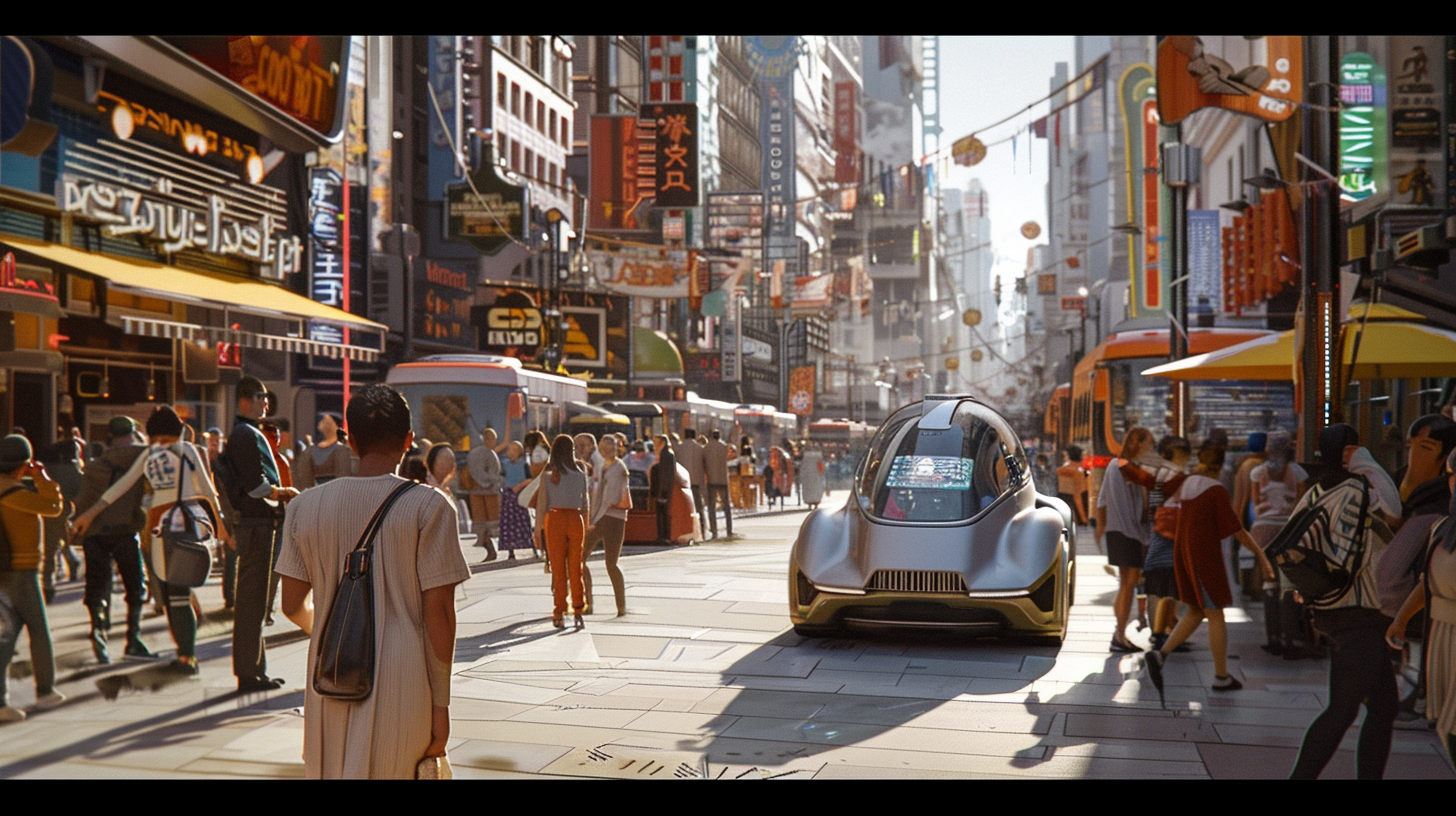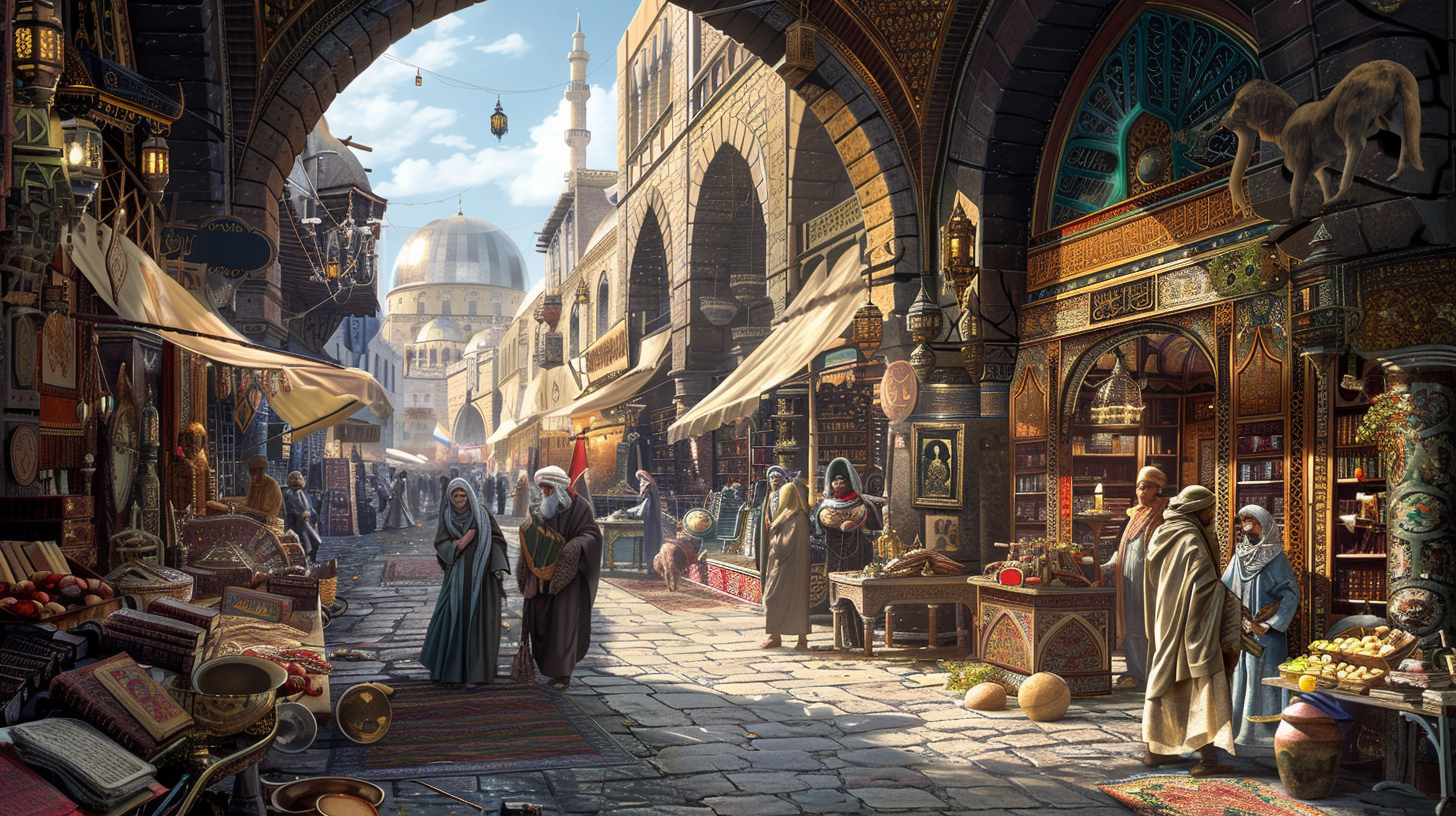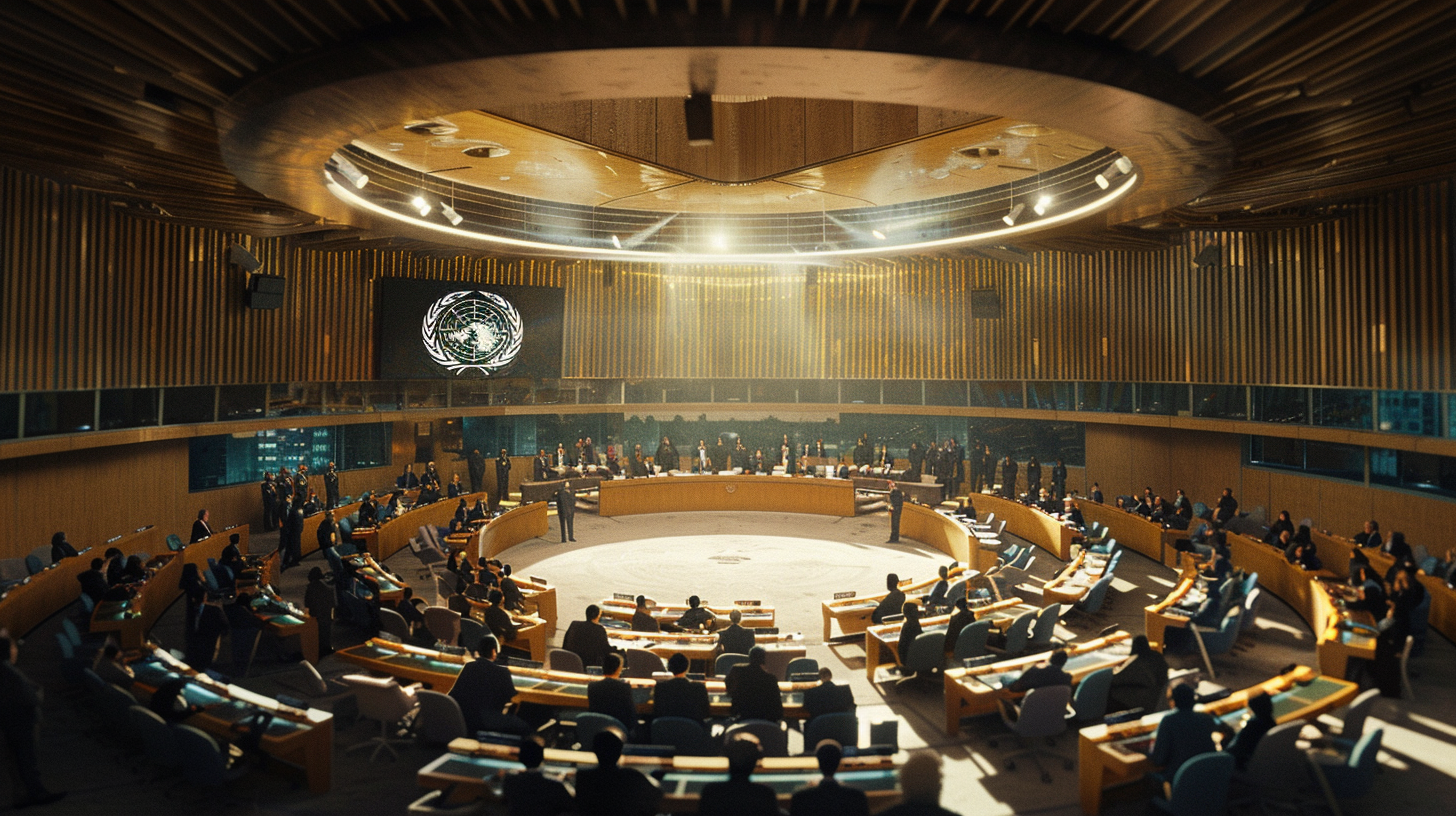Introduction: Envisioning a Modern Golden Age

Visualize waking up in a world where peace, prosperity, and progress are not mere ideals, but everyday realities. Picture bustling streets alive with energy, where technology seamlessly enhances human life, empowering individuals and communities alike. Envision diverse cultures thriving in mutual respect and understanding, where differences are celebrated and shared values are strengthened. This vision is not a distant dream, but a tangible blueprint for what many across the globe envision as the modern Golden Age.
In historical terms, a “Golden Age” represents a period of great achievements in art, literature, and science, often bringing unprecedented peace and prosperity. Think back to the Renaissance, a time when Europe underwent a profound cultural rebirth that celebrated human potential and creativity, or consider the Islamic Golden Age, an era marked by significant advancements in medicine, mathematics, and astronomy, fueled by a passion for knowledge and cross-cultural exchange. These periods were characterized by a thriving of human spirit and intellect, setting benchmarks for what a society can achieve when conditions align.
Today, we stand on the brink of what could be our own Golden Age. Through the power of transformative literature, this article aims to delve deep into the texts that not only inspire but also provide practical strategies for ushering in an era of global flourishing. The books we will explore serve as beacons, guiding you through the wisdom of past and present visionaries, offering the tools necessary for you to play a pivotal role in this transformative epoch.
As you read on, consider how you can contribute to and thrive in this envisioned Golden Age. The insights from these pivotal books are not just for contemplation but for action, aimed at empowering you to help forge a world where the ideals of peace, prosperity, and progress are not aspirations but actualities. Engage with these ideas, and see where they might take you in contributing to a global renaissance that could define our time.
The Philosophy Behind a Golden Age

Throughout history, the notion of a “Golden Age” has captivated societies, symbolizing eras of monumental achievement and harmonious societal advancements. As we explore these revered periods, we can glean insights into how past wisdom can pave the way for our modern pursuit of a new era of prosperity and harmony.
Historical Examples
The Renaissance: This remarkable era, spanning from the 14th to the 17th century, redefined art, science, and thought across Europe. At the heart of the Renaissance was humanism, a philosophy that placed a strong emphasis on the potential and value of the individual. This period witnessed the revival of classical learning and wisdom, which melded with innovative techniques in art, such as perspective in painting, and breakthroughs in science, evidenced by Copernicus’s heliocentric theory. The intellectual atmosphere was charged with a newfound curiosity and a profound commitment to exploring human capabilities, transforming societies into bustling hubs of cultural flourishing and intellectual vigor.
The Islamic Golden Age: Spanning from the 8th to the 14th century, this era is marked by major contributions in science, culture, and philosophy from the Islamic world. Scholars like Al-Khwarizmi advanced mathematics through the introduction of algebra, and physicians such as Al-Razi made groundbreaking contributions to medicine and clinical pharmacology. Knowledge was considered a universal good, transcending ethnic and religious boundaries, leading to the establishment of the House of Wisdom in Baghdad where scholars of different cultures could translate and accumulate all human knowledge. This age was characterized by its cultural flourishing, technological advancements, and a societal structure that cherished knowledge and fostered intellectual debates.
Modern Philosophies
Transitioning to the contemporary era, the dream of a new Golden Age is rejuvenated by modern philosophies that intertwine sustainable development, global cooperation, and technological integration. Today’s thinkers propose these elements as crucial for achieving a societal zenith. Concepts like the circular economy and renewable energy technologies are not just innovations but are foundational to the modern vision of a sustainable and prosperous society. These ideas echo the harmony and prosperity of past Golden Ages but are adapted to address today’s global challenges like climate change and social inequality.
Key Visionaries
Influential modern thinkers like Yuval Noah Harari and Michelle Alexander are shaping our current understanding of a possible new Golden Age. Harari explores the profound impacts of technology and history on humanity’s future, suggesting that a deep understanding of past patterns allows us to influence future societal structures. Michelle Alexander, through her work on civil rights and social justice, highlights how societal transformation can lead to a more equitable world, reminiscent of the inclusivity seen during the Islamic Golden Age.
By intertwining historical insights with contemporary theories, this section paints a tapestry of ideas, inviting you to envision your role in this transformative era. Reflect on how these philosophies, from past and present, might be applied to today’s global challenges. How can you, as part of a global community, contribute to shaping a new Golden Age? Engage with these ideas and imagine the possibilities of a future where prosperity, progress, and harmony are not just ideals, but realities for all.
Review of Pivotal Books: Charting the Course to a New Golden Age

As we explore into the rich tapestry of literature that shapes ideologies and strategies for a modern Golden Age, it’s clear that books play an instrumental role in both envisioning and actualizing a transformed society. Let’s explore several pivotal works, from visionary insights to practical guides, that collectively lay the groundwork for a new era of global prosperity and harmony.
Inspirational Books
Thomas More’s “Utopia” offers an early, imaginative sketch of an ideal society and its functioning. Written in 1516, this seminal work presents an island society in which communities share a common culture and way of life, eschewing private property and embracing communal living. More’s vision challenges us to consider the possibilities of a society where equity and justice are not aspirations but realities. The central thesis of “Utopia” is not merely a proposal for a new social order but a call to question and redefine our concepts of wealth, power, and community, making it profoundly relevant in today’s discussions about societal reform.
Steven Pinker’s “The Better Angels of Our Nature” argues eloquently for the continued progress of humanity towards peace and justice. Pinker uses extensive data to demonstrate that, contrary to popular belief, our era is less violent and more peaceful than any previous period of human existence. His analysis provides a hopeful perspective on human capacity for kindness and cooperation, suggesting that a Golden Age of peace is not only possible but in progress. The book’s insights into the decline of violence and the evolution of societal norms inspire optimism about our ability to achieve lasting global harmony.
Practical Guides
Jeremy Rifkin’s “The Third Industrial Revolution” discusses how lateral power—the distribution of energy and resources across a wide swath of the population—could democratize technology and create a sustainable economy. Rifkin’s vision includes a radical overhaul of energy infrastructure, transitioning from fossil fuels to renewables and building a new economic system that is both sustainable and equitable. This guide provides actionable strategies that can be integrated into current societal frameworks, offering a clear pathway towards economic stability and environmental sustainability in the context of a new Golden Age.
Paul Hawken’s “Drawdown: The Most Comprehensive Plan Ever Proposed to Reverse Global Warming” is a pragmatic blueprint that addresses the pressing issue of climate change. The book compiles and assesses one hundred actionable solutions to reduce carbon emissions and promote environmental recovery. Each strategy is practical and has been proven effective, providing a hopeful outlook for environmental stewardship as a cornerstone of the new Golden Age.
Case Studies and Success Stories
Richard Florida’s “The New Urban Crisis” examines the dual nature of cities as engines of innovation and inequality. By highlighting both successes and failures in urban planning and innovation, Florida offers valuable lessons on creating inclusive cities that foster prosperity for all. His work encourages us to rethink urban spaces not just as places of economic activity but as vibrant communities capable of supporting a diverse and thriving populace.
Frederic Laloux’s “Reinventing Organizations” showcases revolutionary management practices that have transformed workplaces into communities where employees thrive. Laloux’s case studies of companies operating under radical models of self-management and wholeness offer a glimpse into how businesses can operate successfully while promoting personal well-being and social cohesion.
As we weave together the insights from these inspirational books, practical guides, and success stories, a comprehensive tapestry emerges that supports both the dream and the practical attainment of a new Golden Age. Reflect on how these books can not only inspire but also equip you with the knowledge and tools necessary for personal and societal change. This literature does not just inform us; it empowers us, encouraging you to actively participate in shaping a world where prosperity, justice, and sustainability are not ideals but realities we live by every day.
Mastering Change: Unpacking John Kotter's 8-Step Process for Effective Transformation
Role of Technology and Innovation in Shaping a New Golden Age

In today’s rapidly evolving world, technology and innovation stand at the forefront of ushering in a new Golden Age, promising solutions to some of the most pressing global challenges including climate change, inequality, and health disparities. As we delve deeper, you’ll see how these advancements are not just hopeful aspirations but tangible realities shaping our future.
Technological Optimism
Recent breakthroughs in technology have ignited a wave of optimism about the potential to achieve a more sustainable and equitable world. Renewable energy technologies, artificial intelligence, and biotechnology are at the heart of this transformation. Innovations like CRISPR for precise genetic editing are revolutionizing medicine and agriculture, allowing us to tackle diseases and improve food security in ways previously unimaginable. Artificial intelligence is transforming personalized medicine, making healthcare predictive and personalized rather than reactive. Meanwhile, blockchain technology is redefining trust and transparency in governance, offering a new way to combat corruption and ensure fairness in public processes.
These technologies foster a foundational optimism, essential for envisioning a new Golden Age where societal challenges are met with innovative solutions.
Innovative Solutions to Global Challenges
Climate Change: Technologies like solar energy, battery storage, and smart grids are pivotal in reducing our carbon footprint. Advances in solar panel efficiency and the broader accessibility of electric vehicles exemplify how green technology is becoming more integrated and effective. Smart grids, which allow for more efficient electricity use and lower emissions, are becoming a cornerstone in the infrastructure of sustainable cities.
Inequality: Technology also plays a crucial role in bridging divides. Mobile banking has revolutionized financial access for millions who were previously excluded from the traditional banking system. Online education platforms break geographical barriers, offering high-quality education to anyone with internet access. Telemedicine extends this concept to healthcare, enabling doctors to reach patients in remote areas, thus democratizing access to health services.
Health: Innovations in healthcare are profoundly impactful. Telehealth services and wearable health monitors are making it easier to manage personal health and receive care on demand. AI-driven diagnostics are improving accuracy and speed in medical evaluations, ensuring that more people can receive timely and effective treatment.
Integrating Vision into Action: How You Can Shape a New Golden Age

As we stand on the brink of potential societal transformation, the question is no longer if we can achieve a new Golden Age, but how. The answers lie at the convergence of grassroots movements, visionary policy changes, and your personal contributions. Each element is a thread in the fabric of societal change, and together, they weave a robust tapestry of progress.
Community Movements
History has shown us time and again that grassroots movements are powerful catalysts for change. Consider the Civil Rights Movement in the United States, which reshaped societal norms and policies through relentless advocacy and profound moral courage. The movement not only fought against systemic racial inequalities but also laid the groundwork for future legislation to promote equal rights. Similarly, the environmental activism championed by figures like Greta Thunberg has spurred global awareness and action on climate change, demonstrating that when communities mobilize, they hold immense power to influence global agendas.
These movements show that community organizing can achieve significant societal milestones. Today, such strategies are just as vital in fostering a Golden Age. Whether it’s advocating for sustainable practices or rallying for social justice, grassroots movements have the unique power to effect change from the bottom up, pushing society towards more equitable and sustainable norms.
Policy and Governance
While grassroots movements ignite change, substantial and lasting transformation often requires the scaffold of effective policy and governance. Visionary policies such as the New Deal or the formation of the European Union have been pivotal in stabilizing and progressing societies through tumultuous times. Today, we face challenges like climate change and vast social inequalities that need bold policy interventions.
Effective governance, driven by a commitment to the public good and bolstered by political will, is crucial for realizing the ideals of a Golden Age. Policies that prioritize environmental sustainability, economic equity, and social welfare are essential. It’s about creating frameworks that not only address current issues but also anticipate future challenges, ensuring that progress is enduring.
Personal Contributions
Now, let’s talk about you. The role you play in this transformative era cannot be overstated. Every individual action contributes to the collective effort needed to realize a new Golden Age. Volunteering in local community services, participating in or starting local advocacy groups, and staying informed and voting on critical issues are all ways you can make a difference. Each of these actions sends ripples through the fabric of society, influencing others and mobilizing change on a larger scale.
Your involvement signifies more than just participation; it’s a declaration of your commitment to shaping a better world. Whether it’s choosing to support sustainable businesses, reducing personal waste, or advocating for policy changes through civic engagement, your choices and actions are integral to driving the collective journey towards a Golden Age.
The Global Perspective: Cultivating a Universally Beneficial Golden Age

In the pursuit of a new Golden Age, the roles of cultural diversity, inclusion, and international cooperation are not just beneficial—they are imperative. Embracing a global perspective enriches the pool of solutions and solidifies the foundation for sustainable social progress. Let’s delve into how these elements collectively shape a future that is as rich in opportunity as it is in diversity.
Cultural Diversity and Inclusion
The mosaic of world cultures offers a tapestry of ideas, perspectives, and practices that are vital in crafting innovative solutions to global challenges. Cultural diversity and inclusion are the bedrocks upon which a universally beneficial Golden Age can be built. By integrating diverse viewpoints, we unlock a broader and more creative approach to solving complex issues such as climate change and economic disparity.
Consider the global approach to sustainable development. Projects that incorporate local cultural insights into their strategies often yield more sustainable and effective outcomes. For instance, the integration of traditional agricultural knowledge in modern sustainable farming practices in parts of Africa has led to enhanced food security and economic resilience. Similarly, multinational teams in technology companies have pioneered innovations that cater to a wide array of needs and preferences, demonstrating how inclusivity can drive economic and social strengthening on a global scale.
International Cooperation
As we shift our focus to the broader canvas of international relations, the necessity for cooperation across borders becomes clear. Organizations like the United Nations play a pivotal role in this arena, facilitating dialogues and actions that no single nation could effectively address alone. Treaties like the Paris Agreement exemplify how collective action can tackle pervasive challenges such as climate change.
Global cooperation extends beyond environmental issues. In the realm of health, international collaboration has been crucial in combating pandemics. The sharing of data and resources, as seen during the COVID-19 crisis, highlights how countries can unite under a common cause for the greater good of humanity. This spirit of cooperation must be expanded and deepened to address other pressing challenges such as terrorism and global economic crises, where the collective input and concerted action of many nations are required to achieve lasting solutions.
Now, consider your role in this interconnected world. As a global citizen, your actions can have a profound impact. Whether it’s through supporting policies that advocate for international cooperation, participating in cultural exchange programs to better understand and appreciate the diversity of our world, or educating yourself and others about global issues, your contributions are vital.
You have the power to influence change not just locally but on a global scale. By advocating for and participating in initiatives that promote cultural understanding and international cooperation, you help pave the way towards
Challenges and Critiques: Navigating the Road to a Golden Age

As we go aboard on the ambitious journey toward creating a Golden Age, it is crucial to confront the realistic challenges and potential criticisms that such transformative endeavors inevitably face. This exploration is not to dampen our spirits but to equip us with a pragmatic lens through which we can view and tackle these hurdles.
Realistic Challenges
One of the most significant obstacles is the vast economic disparity that exists both within and between nations. This gap can hinder uniform progress towards global goals, such as those outlined in the United Nations Sustainable Development Goals. For example, while wealthier nations can invest in cutting-edge green technologies, poorer regions often struggle to meet basic needs, let alone invest in such advancements.
Political instability further complicates these disparities. Countries embroiled in conflict or corruption may find it difficult to implement policies that promote long-term growth and sustainability. Moreover, the resistance to change, a common human tendency, can stifle reform even in stable societies. The global effort to reach a consensus on climate change, such as that attempted with the Paris Agreement, showcases the painstaking negotiation and compromise required to align diverse interests and priorities.
Balancing Idealism with Pragmatism
Addressing these issues requires a balance between idealism and pragmatism. While the vision of a Golden Age inspires and motivates, the path there involves practical and often incremental steps. For instance, the shift towards renewable energy cannot happen overnight. It requires infrastructure, investment, and time. Countries need to set achievable milestones that consider their unique economic contexts and technological capabilities.
Strategic planning is essential. It involves not only setting goals but also anticipating potential setbacks and adapting strategies accordingly. This approach helps maintain momentum towards the broader vision while managing expectations realistically. By acknowledging that setbacks are part of the process, societies can remain resilient and responsive to changing circumstances.
Now, consider your role in this grand scheme. How can you contribute to shaping a Golden Age? Perhaps you can advocate for policies that support sustainable development or participate in community projects that aim to reduce carbon footprints. Educating yourself and others about the importance of sustainable practices is another powerful way to make a difference.
Your actions, no matter how small they may seem, are part of a larger collective effort. Each step you take adds to the momentum needed to overcome the significant hurdles we face. As you reflect on these possibilities, think about how you can apply your skills and passions to foster change in your community and beyond.
Conclusion: Envisioning and Enacting a Modern Golden Age

As we conclude our exploration of creating a modern Golden Age, it’s crucial to synthesize the insights and themes that have woven through this narrative. From the philosophical musings of ancient civilizations to the cutting-edge technologies of today, the journey towards a transformative era is both inspiring and instructive.
Summarize Key Points
We began by revisiting historical Golden Ages, like the Renaissance and the Islamic Golden Age, where art, science, and culture flourished. These periods were marked by significant advancements that not only shaped their own times but also laid the groundwork for future generations. Today, we stand on the precipice of a new era, potentially our own Golden Age, fueled by rapid technological innovation and a renewed commitment to societal improvement. Visionary literature, robust grassroots movements, and cutting-edge technologies are converging to forge a path toward a globally inclusive and technologically advanced society. These elements are interconnected, each playing a crucial role in sculpting a future that could be as prosperous as those of the past—if not more.
Now, it’s your turn. The books discussed throughout this article offer deep insights and practical strategies for personal and societal growth. I encourage you to delve further into these texts, absorb their teachings, and apply their wisdom to your own life and community. Whether it’s by engaging in local community efforts, advocating for policy changes, or simply spreading the word about the ideas we’ve discussed, you can make a significant impact. Your actions, no matter how small they may seem, are essential threads in the fabric of this new Golden Age.
Imagine a future where these efforts have culminated in a society that mirrors the prosperity of past Golden Ages but transcends them in inclusivity and technological advancement. This is the potential of the modern Golden Age we envision—a world where innovation, equity, and sustainability are not just ideals, but realities. While challenges abound, the collective effort of individuals like you is crucial in overcoming these hurdles. Each step you take brings us closer to realizing this grand vision.
Reflecting back to the imaginative scenario we opened with, the vision of a modern Golden Age is not merely a dream. It’s a possibility that is within our reach, awaiting our concerted effort and participation. You are invited to be an active participant in this historic movement, turning the vision into reality.
Let’s not merely dream of a better world—let’s create it. Together, we can usher in a new era of human flourishing, a true Golden Age for the modern world. Your journey begins now, with the first step you take towards making this vision a living reality.







